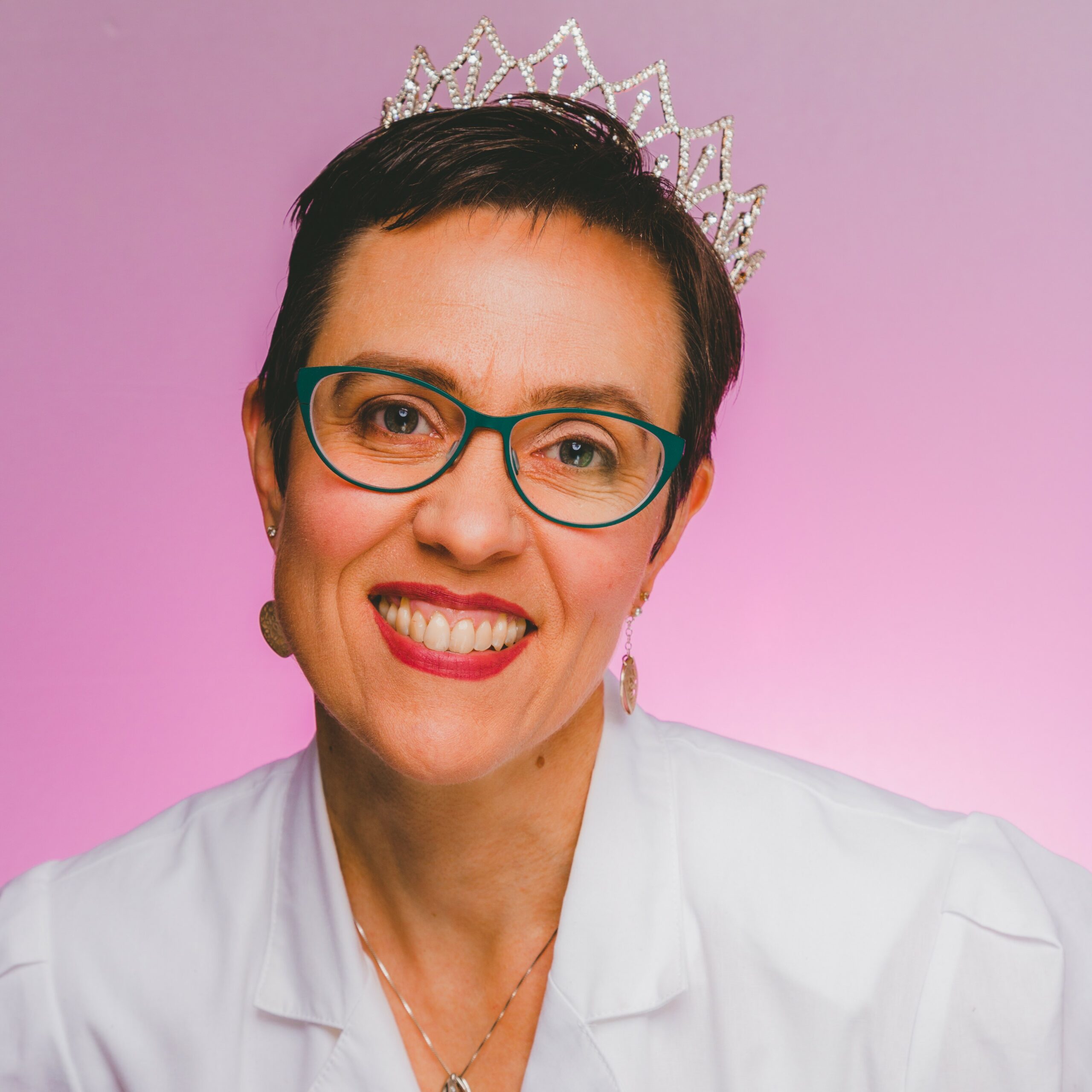
The term “prolapse” in this article refers to pelvic organ prolapse, or vaginal prolapse: prolapsed bladder (cystocele), prolapsed rectum (rectocele), prolapsed small intestine (enterocele), or prolapsed uterus.
I know two sisters. They’re real people, but I won’t use their real names. Let’s call them Deena and Lydia. They both live in their hometown, and they’re good friends. They work together to take care of their aging parents and spend holidays together. When Lydia was going through cancer treatment (don’t worry, she’s fine now), Deena went with her to medical appointments. They’re part of each other’s lives, and they know what’s going on with each other’s health.
But Deena and Lydia both have prolapse. They both have rectocele. And decades — literally, decades — went by before they ever talked about it. All those years, those two sisters had no idea that they both were suffering.
Many women who suffer with prolapse (cystocele, rectocele, enterocele, or uterine prolapse) keep prolapse a secret. They don’t tell their friends, their family members, or if they can avoid it, even their sex partner.
But keeping prolapse a secret might not be the most beneficial choice. Talking about prolapse with the women close to you could make a significant positive difference for you, and for them.
Here are four life-changing reasons to talk with women about prolapse.
1. Sharing your problem could change your life by lifting your burden of shame, fear, and feeling alone.
As bad as the physical symptoms and discomfort of prolapse can be, the emotional pain can be far worse. You can feel broken, alone, afraid of your own body, out of control, terrified the problem might get worse. Very often, women with prolapse feel a deep sense of shame and embarrassment. The best (some would say, the only) remedy for these feelings is reassurance and love. Choose a close, caring friend. Talk to her about what’s happening with your body and how you feel about it. Simply getting your problems, and your feelings, out in the open can begin to heal your feelings of shame. Ask for the emotional support you need, and a true friend will do her best to provide it.
2. Your friend might have prolapse, and talking about it could change her life.
Research shows that up to half of women over age fifty suffer with some degree of vaginal prolapse. Yes, you read that right: up to half of women. Having prolapse can make you feel completely and utterly alone, but in reality, millions and millions of women around the world are suffering too. There’s a good chance that your friend might be suffering, or might develop prolapse in the future. When you open the conversation, you can help her.
• You can provide emotional support to your friend. She will feel less alone, and you can offer her the love and reassurance she needs.
• You can share information that might help your friend. Since you’re here on the Kegel Queen blog, you have access to powerful information that can help women care for prolapse without surgery. Share this article about what to do if your doctor recommends surgery, and share this webinar, that shows you exactly what to do about no-surgery approaches for prolapse.
• When your friend sees that you’re reaching out to talk about your prolapse, she may feel inspired to talk with the women in her life, creating a ripple effect of help for them, too.
3. If your friend doesn’t have prolapse, you could change her life by helping her prevent it.
For many women, the first time they ever hear of prolapse happens when they, themselves, experience it. Even though — here’s that statistic again — up to half of women over age 50 (and many younger women) suffer, most women have no idea what prolapse is, what puts them at risk, or how to help prevent prolapse. My webinar includes several strategies for preventing prolapse or keeping a mild prolapse mild, including information about how to exercise safely, how to give birth in a way that’s safest for the pelvic floor, and more.
4. Increasing public awareness about prolapse can change millions of lives, and it’s up to women to do it.
In the U.S. alone, one in five women will have surgery to treat vaginal prolapse. One in five. Surgery is not only the most expensive prolapse treatment, it’s the most dangerous. Up to one in six women have complications. For up to half of women, the procedure fails. Yet doctors continue to offer surgery as the first, or only, treatment option for women with prolapse, ignoring safer and more affordable approaches. Women continue to allow this insanity because they’re uninformed — because they’ve never even heard of prolapse until they have it themselves.
Women need to know how common prolapse is. Women who have prolapse need to know that they’re not alone. Women need to know about the dangers of surgery, and what the alternatives are. Women need to know how to prevent prolapse. We need to support each other emotionally, and by sharing information.
Talk with your friends. Bring them to this site. Together, we can bring this secret epidemic out of the shadows and give women the tools they need to handle this frightening condition safely, and begin to heal.
You may also be interested in this additional information…
Help! My Doctor Says I Need Surgery Down There
How Not to Be a Victim of Your Doctor (or Feel Like One)
Top Five Things Your Doctor Should Be Saying about Your Prolapse, but Isn’t

